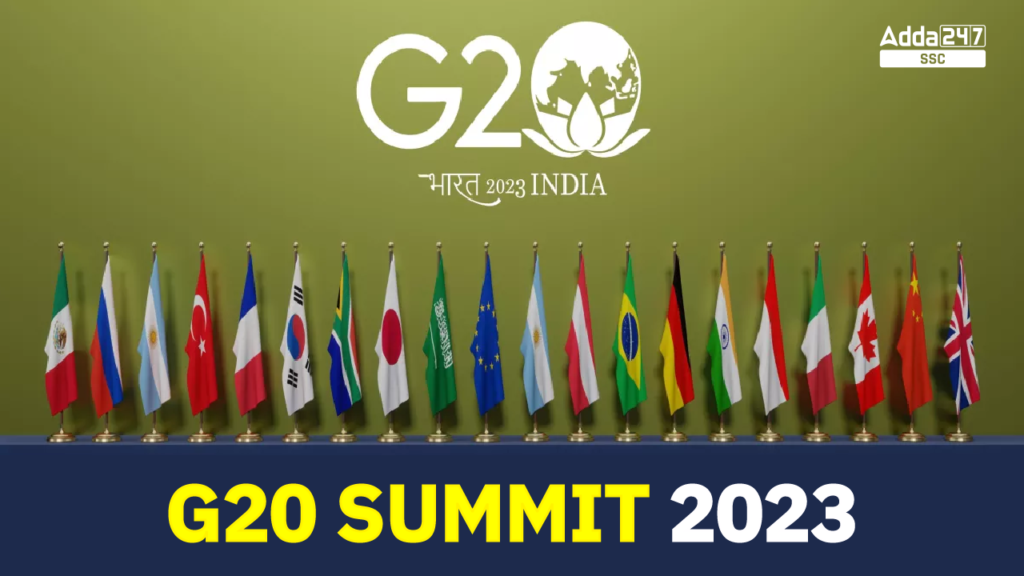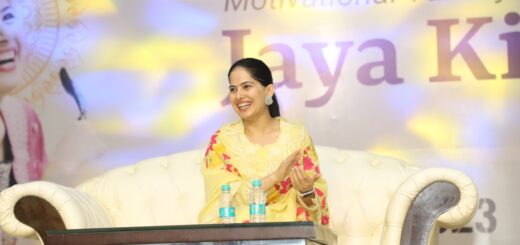Highlights from G20 India’s Presidency: Shaping Global Diplomacy

Prime Minister Narendra Modi’s Diplomatic Triumph:
India’s G20 presidency has emerged as a diplomatic milestone, amplifying the concerns of the Global South. The outcomes of this summit hold significance for every Indian. Under India’s leadership, the G20 Summit garnered support from all member nations for a Leaders’ Declaration acknowledging the conflict in Ukraine without attributing blame. Prime Minister Modi chaired the Summit and advocated for reforming global institutions like the United Nations Security Council (UNSC), gaining support from the United States.
G20 New Delhi Declaration:
The 2023 G20 New Delhi Leaders’ Declaration, encompassing 83 paragraphs, achieved a remarkable 100 percent consensus, even with China and Russia in agreement. Notably, it broke from tradition by containing no footnotes or Chair’s Summary, marking a historic moment. This comprehensive declaration included numerous agreements in the Finance Track, 8 paragraphs addressing the Ukraine conflict’s economic implications, and emphasized strategies for strengthening multilateral development banks, regulating cryptocurrencies, and enhancing financial inclusion.
Climate Change Commitments:
The declaration underscored the urgency of mobilizing substantial funding for developing countries, targeting “US$5.8-5.9 trillion in the pre-2030 period” and “US$4 trillion per year for clean energy technologies by 2030” to achieve net-zero emissions by 2050. It called for a significant increase in climate funding, shifting from billions to trillions of dollars.
African Union Joins the G20:
In a historic move, the African Union, representing 55 African nations, gained full membership in the G20, akin to the European Union’s representation.
India’s Global Leadership:
India strategically positioned itself as a champion for developing and underdeveloped nations, aligning with aspirations for a permanent UNSC seat. New Delhi actively sought support from the African continent, which wields 55 crucial votes.
Diverse Attendees:
The G20 Summit in Delhi attracted a diverse array of global leaders, including the President of the Union of Comoros and Chairperson of the African Union, alongside leaders from Germany, France, the UK, Turkey, Canada, Italy, South Korea, and Brazil.
Notable Absences:
Chinese President Xi Jinping and Russian President Vladimir Putin were absent, with Premier Li Qiang representing China and Foreign Minister Sergey Lavrov representing Russia.
India-Middle East-Europe Economic Corridor (IMEC):
During the summit, an MoU was signed among India, the U.S., Saudi Arabia, the European Union, the UAE, France, Germany, and Italy to establish the India-Middle East-Europe Economic Corridor. IMEC aims to promote economic development by fostering integration between Asia, the Arabian Gulf, and Europe, offering an alternative to China’s Belt and Road Initiative.
Climate Action Debate:
Despite the urgency of phasing out fossil fuels, G20 leaders did not reach a consensus, casting a shadow over forthcoming climate discussions in the UAE, where the G20 nations’ collective contribution to global emissions remains a crucial concern.”
In conclusion, India’s presidency of the G20 in 2023 marked a pivotal moment in global diplomacy. Prime Minister Narendra Modi’s leadership led to significant achievements, including unanimous support for acknowledging the Ukraine conflict without assigning blame and a historic 100 percent consensus on the G20 New Delhi Declaration. India’s role as a champion for developing nations and its outreach to the African Union showcased its commitment to shaping a more inclusive and equitable world order. In summary, India’s G20 presidency showcased the nation’s growing diplomatic influence and its commitment to addressing pressing global challenges. It highlighted the power of diplomacy and cooperation on the world stage, reminding us that together, nations can work towards a more sustainable, equitable, and prosperous future.”


